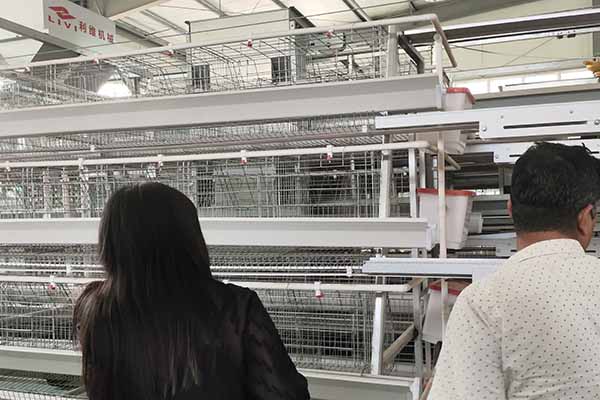Chicken Farm Planning Guide for Beginners: A Professional Approach
Time : 2025-07-03
Are you dreaming of starting your own chicken farm but unsure where to begin? Chicken farming can be a lucrative venture if done correctly. In this comprehensive guide for beginners, we’ll cover the essential steps, equipment, and strategies needed to establish a successful chicken farm. From选址 to day-to-day operations, this guide will help you get started on the right foot.
Understanding the Basics of Chicken Farming
Before diving into the specifics of planning a chicken farm, it’s important to have a solid understanding of the basics. Here’s what you need to know:
Types of Chicken Farms
There are primarily two types of chicken farms: free-range and confinement. Free-range farms allow chickens to roam outdoors, while confinement farms house chickens indoors.
Breeds of Chickens
There are various breeds of chickens, each with its unique characteristics and purpose. Some popular breeds include:
– Layers: White Leghorns, Red Sex Links, and Australorps
– Broilers: Cornish Rocks and White Rocks
– Dual-purpose: Brahmas, Plymouth Rocks, and Rhode Island Reds
Lifecycle of Chickens
Chickens go through several stages, from chicks to laying hens. It’s crucial to understand these stages and their respective needs.
Planning Your Chicken Farm
Location, Location, Location
Choosing the right location for your chicken farm is crucial. Here are some factors to consider:
Proximity to Markets
A central location will help reduce transportation costs and increase access to potential buyers.
Availability of Water and Electricity
Adequate water and electricity supply are essential for running a chicken farm.
Soil and Climate
Good-quality soil and favorable climate conditions will support healthy chicken growth.
Legal and Permits
Ensure that you comply with local regulations and obtain all necessary permits for your chicken farm.
Designing Your Chicken Farm Layout
A well-designed chicken farm layout will help streamline operations and ensure the comfort and well-being of your chickens. Here’s a step-by-step guide to designing your farm layout:
Chicken Houses
Chicken houses should provide enough space for your chickens to roam and forage. Ensure proper ventilation and insulation.
Feeding and Watering Facilities
Install reliable feeding and watering systems, ensuring that your chickens have access to fresh feed and water at all times.
Manure Management
A well-managed manure management system will prevent health issues and environmental pollution.
Chicken Farming Equipment
Brooder Equipment
Brooder equipment, such as heat lamps, waterers, and feeders, is essential for the first few weeks of a chick’s life.
Laying Nest Boxes
Laying nest boxes are essential for your hens to lay eggs in a comfortable environment.
Roosting Racks
Roosting racks provide a resting area for your chickens, ensuring they stay warm and healthy at night.
Feeding and Watering Systems
Invest in high-quality feeding and watering systems to meet the nutritional needs of your chickens.
Security Measures
Ensure that your chicken farm is secure from predators, theft, and extreme weather conditions.
Day-to-Day Operations
Running a successful chicken farm requires dedication and attention to detail. Here are some tips for daily operations:
Health and Welfare
Regularly monitor the health of your chickens, ensuring they receive proper vaccinations and medication when necessary.
Feeding and Watering
Maintain a balanced diet and provide fresh water for your chickens throughout the day.
Sanitation and Manure Management
Keep your chicken farm clean and manage manure properly to prevent health issues and environmental pollution.
Marketing Your Chicken Products
Direct Sales
Establish direct sales channels, such as farmstands, community-supported agriculture (CSA) programs, and local farmers’ markets.
Wholesale
Explore opportunities to sell your chicken products wholesale to local restaurants, grocery stores, and food distributors.
Online Marketing
Leverage the power of social media and online marketing platforms to reach a wider audience.
Conclusion
Starting a chicken farm can be an exciting and rewarding experience. By following this comprehensive guide for beginners, you’ll be well-equipped to establish and run a successful chicken farm. Remember, dedication, knowledge, and a passion for poultry farming are the keys to long-term success.












